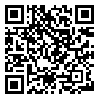Volume 1, Issue 4 (12-2011)
IJOCE 2011, 1(4): 609-632 |
Back to browse issues page
Download citation:
BibTeX | RIS | EndNote | Medlars | ProCite | Reference Manager | RefWorks
Send citation to:



BibTeX | RIS | EndNote | Medlars | ProCite | Reference Manager | RefWorks
Send citation to:
Salajegheh J, Khosravi S. OPTIMAL SHAPE DESIGN OF GRAVITY DAMS BASED ON A HYBRID META-HERURISTIC METHOD AND WEIGHTED LEAST SQUARES SUPPORT VECTOR MACHINE . IJOCE 2011; 1 (4) :609-632
URL: http://ijoce.iust.ac.ir/article-1-66-en.html
URL: http://ijoce.iust.ac.ir/article-1-66-en.html
Abstract: (40187 Views)
A hybrid meta-heuristic optimization method is introduced to efficiently find the optimal shape of concrete gravity dams including dam-water-foundation rock interaction subjected to earthquake loading. The hybrid meta-heuristic optimization method is based on a hybrid of gravitational search algorithm (GSA) and particle swarm optimization (PSO), which is called GSA-PSO. The operation of GSA-PSO includes three phases. In the first phase, a preliminary optimization is accomplished using GSA as local search. In the second phase, an optimal initial swarm is produced using the optimum result of GSA. Finally, PSO is employed to find the optimum design using the optimal initial swarm. In order to reduce the computational cost of dam analysis subject to earthquake loading, weighted least squares support vector machine (WLS-SVM) is employed to accurately predict dynamic responses of gravity dams. Numerical results demonstrate the high performance of the hybrid meta-heuristic optimization for optimal shape design of concrete gravity dams. The solutions obtained by GSA-PSO are compared with those of GSA and PSO. It is revealed that GSA-PSO converges to a superior solution compared to GSA and PSO, and has a lower computation cost.
| Rights and permissions | |
 | This work is licensed under a Creative Commons Attribution-NonCommercial 4.0 International License. |





